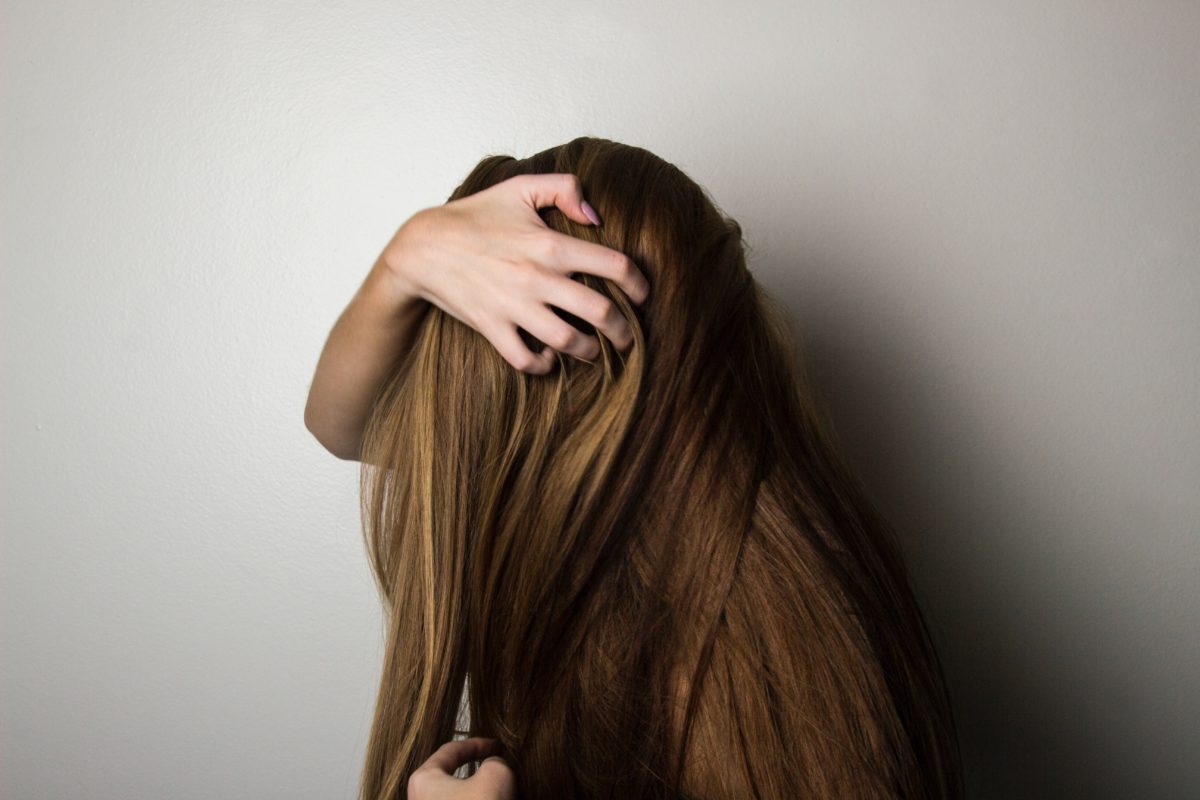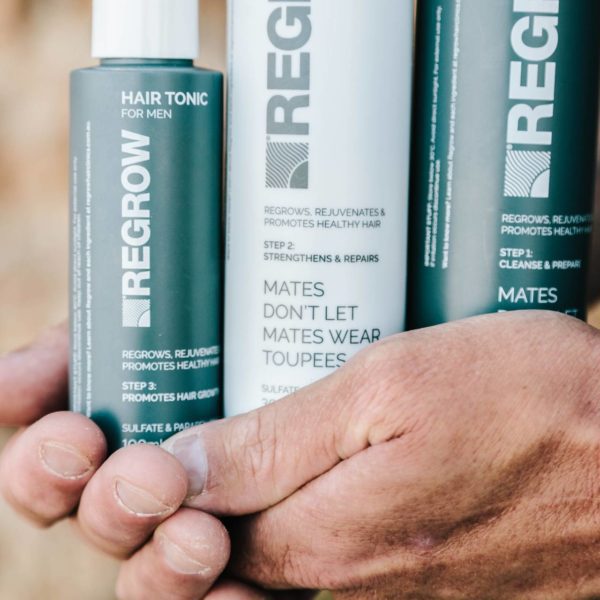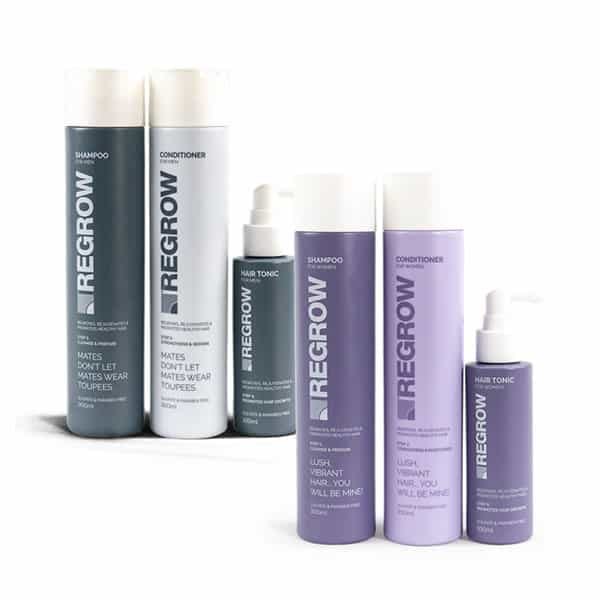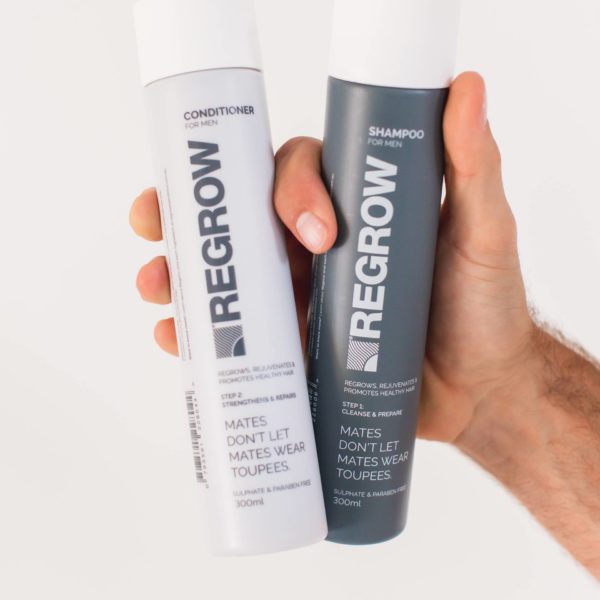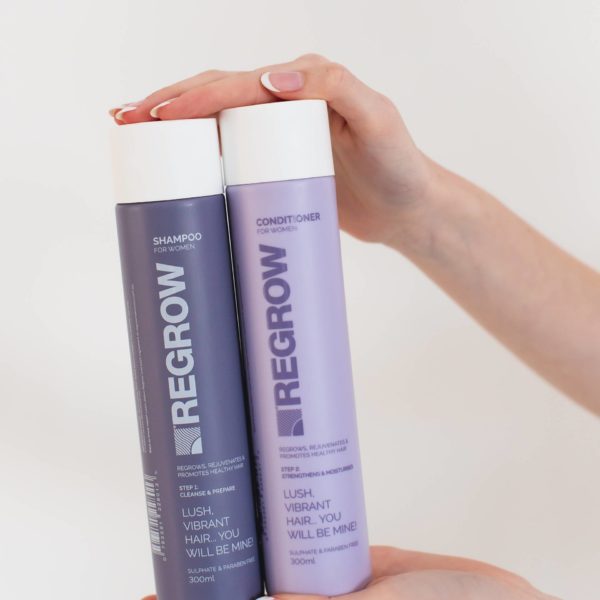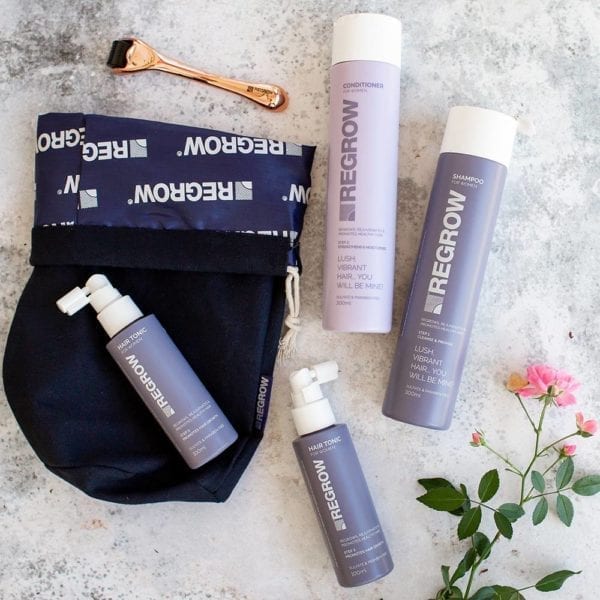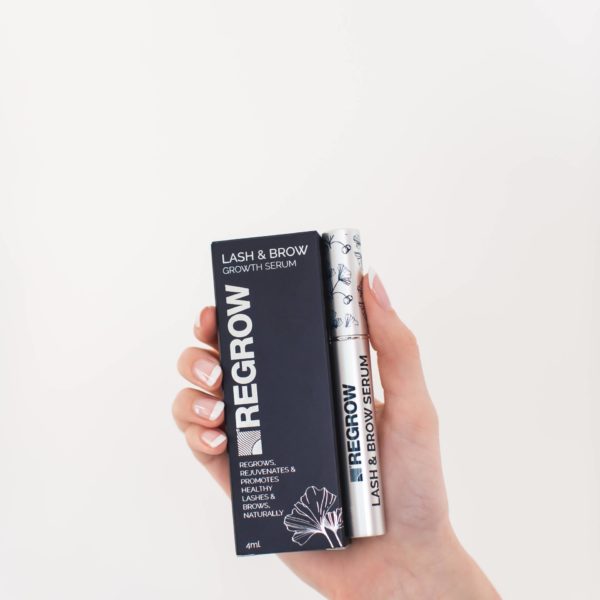Blog, Men's Hair Loss, Women's Hair Loss
Can Covid cause hair loss? Plus 5 tips to help you grow your hair back after Covid.
Posted on by Regrow Hair Clinics
One thing we know for sure after the past few years, is that Covid affected people very differently. From loss of taste and smell to nerve and joint pain – the mix of symptoms was broad. One strange symptom experienced by more than 20% of men and women who recovered from Covid is mass hair shedding, or hair loss, one to three months after infection.
Actress Alyssa Milano shared her experience with post-Covid hair loss in a raw Instagram post – and so many related to the experience of shedding way more hair than usual.
While hair loss is becoming a recognised long-term symptom of Covid, what causes it, and how can you help your hair to recover to its former glory?
What can cause Hair Loss after Covid?
It is believed that Covid-related hair loss is actually a form of telogen effluvium.
Telogen effluvium can happen to anyone and is triggered when the body goes through a stressful event such as illness, having a baby, emotional stress, menopause, surgery, and even some medications. You can read the study here for all the scientific details.
Explaining the Science of Telogen Effluvium
Losing hair is a normal part of hair growth, and people shed an average of 100-150 hairs each day. Around 90% of the hair on our scalp are in a growth phase (anagen) which lasts for approximately 3 years. Once they leave the anagen phase they enter into telogen, which lasts two to six months. Around 10% of our hair is in telogen which ends in shedding.
Stress can force more hair into this phase, up to 50%, and this is when we experience telogen effluvium. It can last up to six months, and can cause visible bald patches, wider parts, or obvious lack of volume.
That’s the bad news… but now it’s time for the good news!
Can Covid-Related Hair Loss be Treated?
Yes! It’s important to remember this is short-term and temporary hair loss and can be treated with the same methods recommended for telogen effluvium. This is actually one of the conditions we created our hair care system to tackle, and there are lots of other ways to support hair growth so your locks can get back to their luscious selves in 6 to 12 months.
Regrow’s Tips to assist with Covid-Related Hair Loss
Destress
While losing handfuls of hair in the shower and hairbrush is stressful, it is important to minimise your stress levels as this will help your body to ease the shedding phase. De-stressing looks different for everyone but meditation, being out in nature, getting more sleep, and decreasing screen time are all proven ways to calm your nervous system. Regular exercise and socialising are also important. If you feel you need further support, be sure to reach out to your healthcare provider for advice.
Be Gentle
This is a great time to reassess how you are treating your hair everyday. Excess or rough brushing, tight or high ponytails, and vigorous hair washing can all increase hair fall. Find ways to wash, brush and style your hair that is gentler on the roots, and your locks will thank you! Also try and take a break from colour and heat treatments while your hair is in recovery mode.
Stimulation
Massaging and increasing blood flow to your scalp is actually really important for hair growth – just be sure you are not ripping at the hair through vigorous movements. Our derma rollers are perfect for stimulating the scalp through micro needling, which encourages blood flow and collagen. It also helps any products (such as our Hair Tonic Spray) to better penetrate the hair follicles.
Diet and Vitamins
Be sure you are eating a balanced and nutritious diet, as a healthy body has more energy for recovery. Studies have also shown vitamins such as B Vitamins, Iron, Zinc and Vitamin C are beneficial for hair growth, and can also help to decrease hair fall.
Routine
Now your hair has your attention, take the time to consider your hair care routine. Regrow’s Shampoo, Conditioner and Hair Tonic are packed with natural botanicals proven to support hair growth, as well as natural DHT blockers (thehormone that causes hair loss). You can read about our ingredients here, and get started with our products here.
Read the study here – COVID-19 infection is a major cause of acute telogen effluvium
